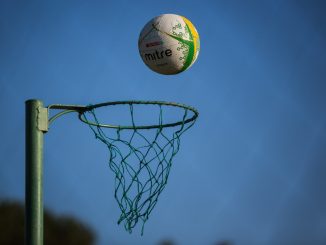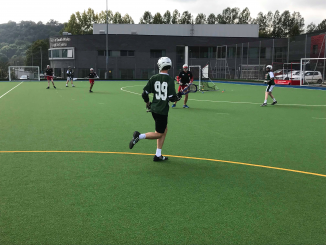
by Jordan A Jones
PREMIER Sports TV presenter Lauren Jenkins has spoken of the importance of conferences focusing on getting women to participate in sport and sports broadcasting.
Jenkins, who has also worked for BBC Wales, was part of the NUJ Training Wales conference at Cyncoed Campus last month and she chaired a discussion between broadcast panellists.
Ahead of the University of South Wales’s Women and Sport Conference which will take place at the USW Sport Park campus tomorrow, Jenkins said these kinds of initiatives are useful for those trying to find their way in the sports journalism industry.
“I think they’re very important in terms of recognizing and addressing certain issues but also they’re a great opportunity to network and to provide aspiring journalists with support and advice.
“I personally found it a great way of measuring the development that has been made in the industry; to hear anecdotes from more experienced colleagues and to see the wealth of talent among current undergraduates was quite refreshing.”
Having presented for Welsh language channel S4C, presenting Rugby Pawb which focuses on colleges and schools rugby, Jenkins was given the opportunity to present for Premier Sports earlier this summer.
Premier Sports signed a landmark partnership with the Guinness PRO14 this year and chose to lead the way, by putting the former Cardiff University student in a front-facing role as a pitchside reporter.
Jenkins is not alone in being a female presenter in what is a male-dominated environment. Catrin Heledd is a presenter for S4C’s Club Rygbi, which also provides PRO14 coverage, from a Welsh language perspective.
“I generally think it’s great to have more women involved in the coverage of prime time men’s sport.
After all, so many females are passionate and knowledgeable sports fans, so why shouldn’t they be involved in the coverage of the event.”
“There is still an old-fashioned narrative that persists among some viewers that a woman doesn’t naturally belong in the conversation, so with more female broadcasters doing a great job in both football and rugby, it should help to eradicate this viewpoint for good.”
Although not Jenkins’ code, there has been a shred of evidence in an increase in coverage for women’s football, both in the United Kingdom and in Wales.
Wales narrowly missed out in qualifying for the FIFA Women’s World Cup and had their game against England, broadcast on live terrestrial television.
“I do think the coverage around women’s football, in particular, has increased significantly in the last few years. When a team is successful, audience interest naturally increases which has been great for our national team.
“But we do need to continue to provide the coverage and endeavour to generate interest even when they’re not playing in vital world cup qualifiers. I still think media outlets and governing bodies need to work more closely together to maximize coverage and interest.”
Students from the Sports Journalism course at the University of South Wales are hosting their second annual conference tomorrow. Last year the theme was mental health in sport.



